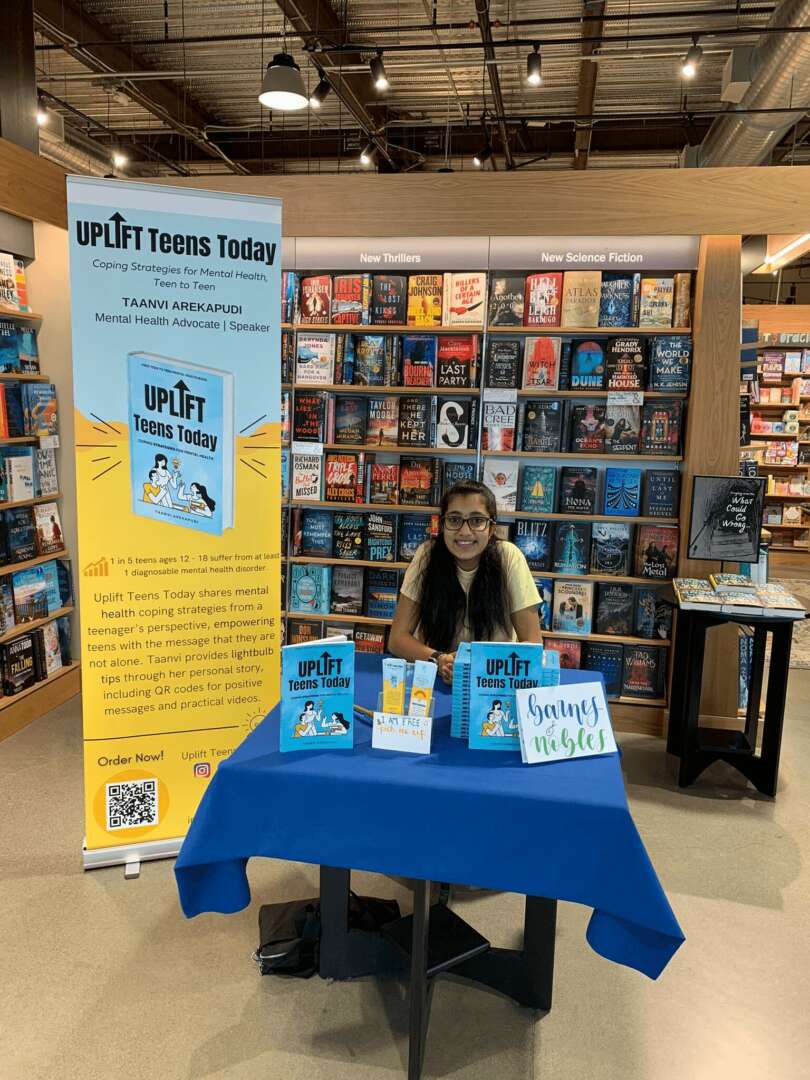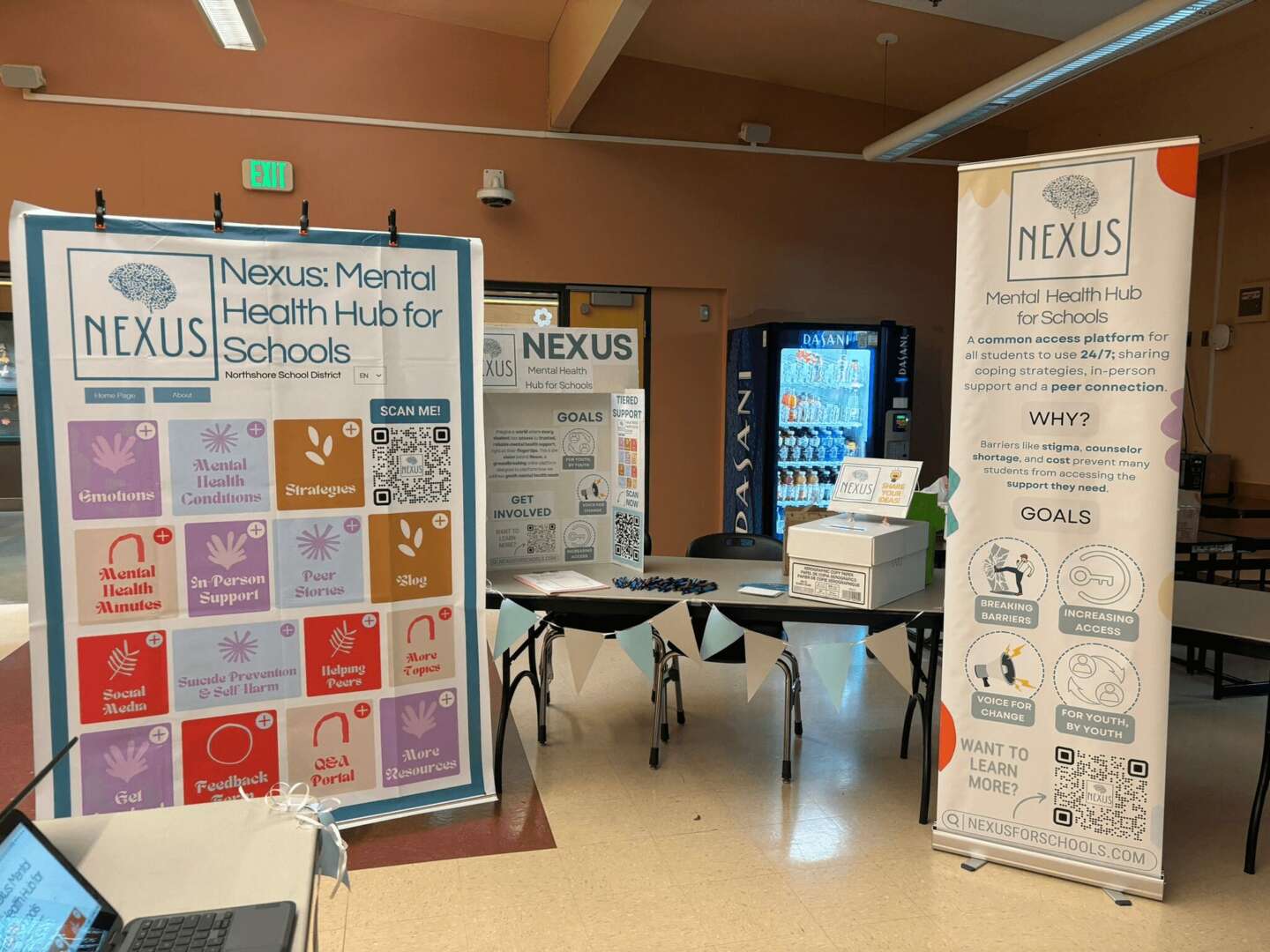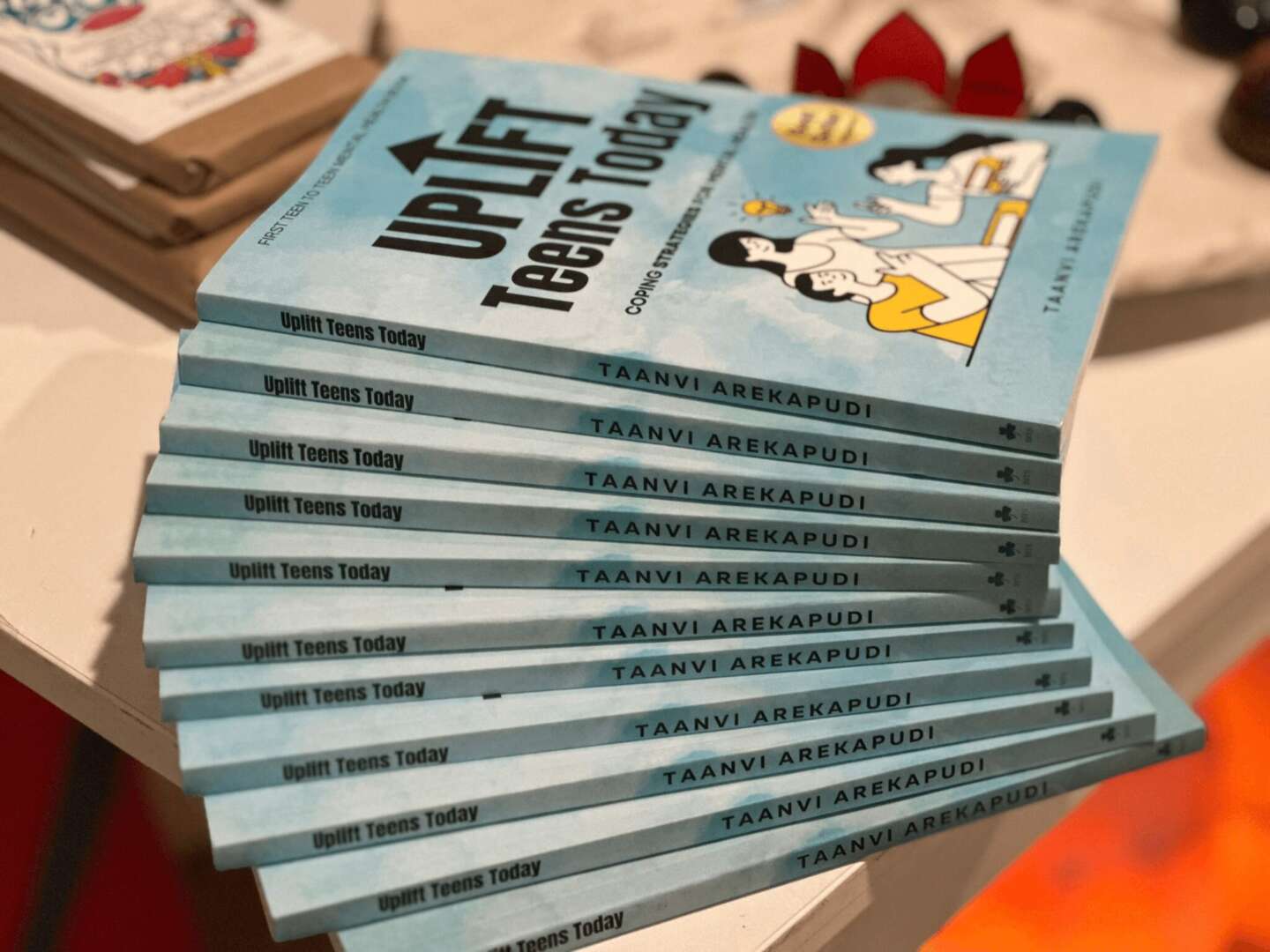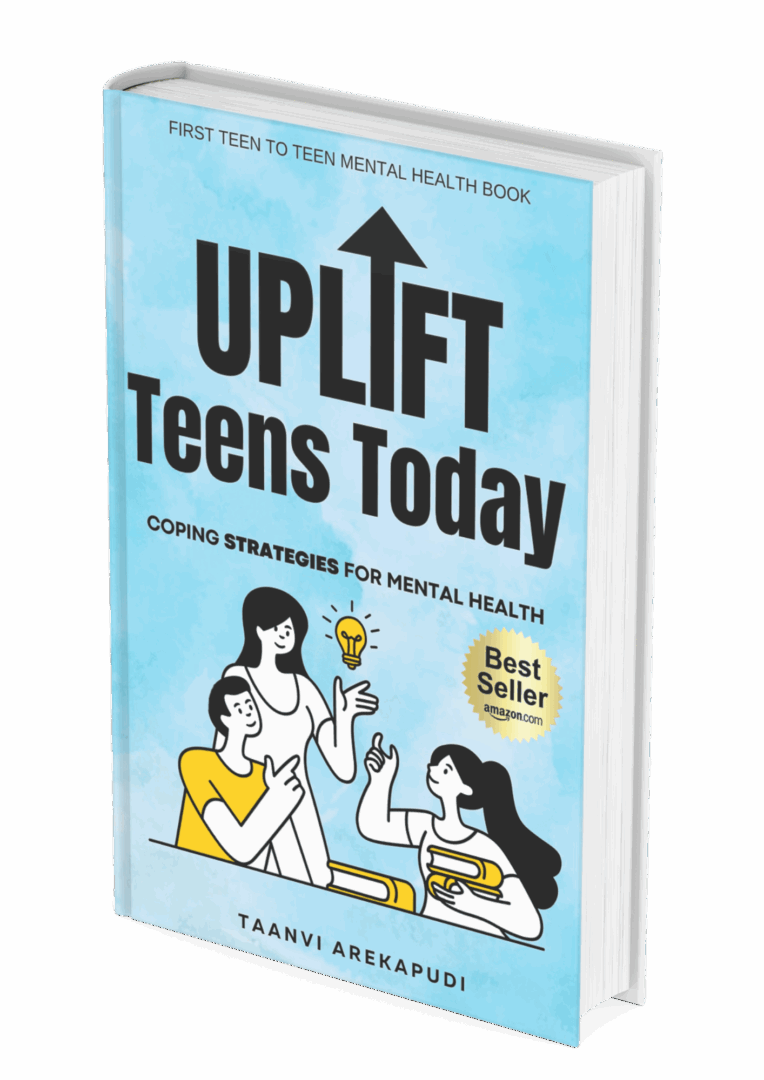We caught up with the brilliant and insightful Taanvi Arekapudi a few weeks ago and have shared our conversation below.
Taanvi, thanks for joining us, excited to have you contributing your stories and insights. Was there a moment in your career that meaningfully altered your trajectory? If so, we’d love to hear the backstory.
My own experience with mental health wasn’t just a defining moment for me, it was the catalyst that propelled me towards advocacy! To understand why, let’s dive into my story:
At nine, my family relocated from Ireland to the US. What started as an exciting adventure became a struggle with loneliness and feeling like I didn’t belong. Everything felt new and overwhelming, and I longed for resources from teens who could relate to my experience.
Bottling up these emotions made me feel like the problem like something was wrong with me. I even tried hiding behind a fake smile to appear “normal.” New feelings of stress, anxiety, and being overwhelmed made me feel isolated, like the odd one out. For months, I kept up this facade, feeling lost inside.
One day, I couldn’t hold it in any longer. I opened up to my sister and parents, pouring out my heart about what I’d been going through for so long. The fear of being alone had kept me silent, but to my immense relief, they said I wasn’t alone. My mom even introduced me to a 5-minute mindfulness technique that helped me feel so much better.
This experience led to two big realizations. First, I wasn’t alone – millions of youth struggle with similar challenges. Second, while mindfulness was a great strategy, there had to be more tools out there. That’s when I embarked on a mission to create a toolkit of coping mechanisms. I discovered the power of resilience, self-reflection, and reaching out for support. Learning to navigate these tough emotions wasn’t about ignoring them, but acknowledging them and using practical strategies to cope.
Fueled by this desire to help others, I started my own club during online learning in 6th grade (around COVID times). Through the club, I heard many more young people share their stories and strategies with each other, creating an open and non-judgmental space. Knowing I could help a small group of people, I wanted to reach a wider audience and decided to start writing my book, Uplift Teens Today: Coping Strategies for Mental Health, at age 12. After a year and a half of working on it (quite the rollercoaster ride!), I published it at age 13, as the first teen-to-teen mental health book, which soon became an international bestseller.
Following that, I started speaking at national conferences and appeared on media outlets like FOX, ABC, CBS, King5, ETV, and TV9. I even reached out to the president of the United States about my mental health initiatives! Being part of this amazing movement was a great way to heal myself and help others.
Last year, at age 14, I created and published my emotion card deck called “Emotion Cards: Unveiling the Power of Emotions, One Card at a Time.” It’s been incredible to see how sharing my story and strategies empowers others on their own mental health journeys. Since then, I’ve been featured on more media shows, spoken at American Academy of Pediatrics conferences, received the National Alliance on Mental Illness 2024 Young Leaders Award, worked at the Healthcare Authority, AND launched my newest project, Nexus: Mental Health Hub for Schools, reaching over 100K+ students nationwide, with the goal of expanding to all 80 million+ students in the US. Now, I’m excited to keep using my voice to break the stigma and share these tools with teens around the world!

Taanvi, love having you share your insights with us. Before we ask you more questions, maybe you can take a moment to introduce yourself to our readers who might have missed our earlier conversations?
My mission is to be a beacon of hope and support for my peers (teenagers) navigating the complexities of mental health through Uplift Teens Today (non-profit).
My Story: It all began at the age of nine when I moved to a new country. This unexpected change triggered anxiety, isolation, and low self-esteem. Feeling lost, I embarked on a journey to find coping mechanisms. Through this process, I discovered the power of self-care and practical tools for managing mental well-being.
What I Do: I want to ensure no teen feels alone in their struggles. That’s why I created resources specifically designed by and for teens.
These include:
– Uplift Teens Today: Coping Strategies for Mental Health:
This international bestselling book delves deeper into your journey and offers practical coping strategies beyond the typical “take a walk” advice. It’s perfect for all ages! I published this at 13, and it has been featured on FOX, ABC, CBS, ETV, TV9, and more! Available for purchase on my website (https://www.amazon.com/Uplift-Teens-Today-Coping-Strategies/dp/B0BJH5KW28) and Amazon (https://www.amazon.com/Uplift-Teens-Today-Coping-Strategies/dp/B0BJH5KW28). In these pages, you’ll find the perfect companion to help you tackle the challenges life throws your way. With real-life guidance, this book empowers you to take charge of your mental health and provides valuable insights to reduce anxiety in your day-to-day life. Whether you’re a teen navigating the ups and downs of adolescence, a young adult seeking personal growth, or a kid on a journey to positive change, ‘Uplift Teens Today’ is your essential resource. It’s a source of inspiration, a toolkit for mental well-being, and a guide to making every day a little brighter.
– Emotion Cards Deck:
This interactive tool helps all ages identify and manage their emotions in a healthy way. By breaking the stigma of only feeling happy and sad, you’ll learn how to acknowledge any emotion you are going through. Available for purchase on my website (https://www.amazon.com/Uplift-Teens-Today-Coping-Strategies/dp/B0BJH5KW28). Within these cards, you’ll explore the art of understanding your emotions, gain self-awareness, and achieve inner harmony with our Emotion Cards Deck. Elevate your emotional intelligence and overall well-being effortlessly. Empower yourself today!
– Nexus: Mental Health Hub for Schools:
Nexus, a groundbreaking online platform designed to revolutionize how we address youth mental health needs. This innovative platform provides schools with a one-stop shop for student mental health resources. Imagine a world where every student has access to trusted, reliable mental health support, right at their fingertips. This is the vision behind Nexus, a groundbreaking online platform designed to revolutionize how we address youth mental health needs. Introducing Nexus, an online platform designed to empower students with self-management tools for mental well-being. It offers a variety of resources (videos, peer talks, coping strategies) through a user-friendly app and website. By increasing access to support and reducing stigma, Nexus aims to lessen the burden on counselors and equip students to proactively manage their mental health. Do you want to learn more, get involved, become a youth ambassador, write a blog/peer story, or bring Nexus to your school/district? Visit: nexusforschools.com
What Makes Me Unique: As a teen myself, I understand the challenges teens face today. My resources are relatable, and practical, and offer hope for a brighter and more empowered future. And, my book is actually the first teen-to-teen mental health book!
What I’m Most Proud Of: Empowering teens to take charge of their mental health is incredibly rewarding. Witnessing them embrace self-care and find their inner strength brings me immense joy. I am most proud of hearing the community’s needs and making resources to help them. I am so grateful to be determined to achieve my goals and help the community!
What I Want You to Know: You are not alone. Mental health challenges are common, but there’s hope for healing and growth.
Uplift Teens Today offers practical tools and relatable resources specifically designed for teens.
With dedication and the right support, anyone can thrive despite mental health challenges.
I’m here to be a source of inspiration and guidance. Let’s work together to break the stigma surrounding mental health and create a future where all teens feel empowered and supported!

Other than training/knowledge, what do you think is most helpful for succeeding in your field?
I feel like the most important thing to be successful in the mental health advocacy team, is taking care of yourself!
From my own personal experiences, I imagine my journey in this field as a roller coaster ride. There will be ups and downs, and it’s important to remember that no matter how many downs I encounter, there is always a direction I’m headed. And, to help us navigate through the twists and turns, it’s important to build a great support system around us. This can be in the form of colleagues, mentors, or friends and family who understand the work we do and can offer support when needed. It’s also important to keep in mind our ultimate goal of improving others’ mental health. This can be a powerful source of motivation and determination to keep pushing forward, even when faced with challenges or setbacks.
However, in the midst of this journey, we must not forget to take care of our own mental health and well-being. It’s easy to get caught up in our work and not prioritize ourselves, but this will eventually lead to burnout and can negatively impact our well-being, which can make it harder to achieve the goal wholeheartedly.
So, my advice is to embrace the roller coaster ride, keep a clear direction in mind, build a supportive system around you, and prioritize your own mental health and well-being. By doing so, we can continue to make a meaningful impact on the mental health field and help improve the lives of others.

Can you share a story from your journey that illustrates your resilience?
When I first started writing my book, Uplift Teens Today: Coping Strategies for Mental Health, I was determined to share my knowledge and experiences with teenagers who might be struggling with their mental health. I wanted to offer practical tips and advice that could help them cope with difficult emotions and situations, just like I would’ve wanted when I was going through my early mental health challenges.
At first, I thought a tip-and-anecdote format would be perfect. I would offer a coping strategy and then share a personal story of how I had implemented that strategy in my life. But as I wrote, I realized that my anecdotes were all over the place. They were from different times in my life and didn’t connect to each other.
However, I continued writing as I got into a flow and didn’t think twice. And reached the point where I wrote 25,000 words, and felt so accomplished. I felt like it would be the best time to start looking for editors to help me with my book. After posting on Facebook looking for one, a wonderful woman offered to be my writing advisor, and I was so grateful. After she read through the 25k words I had written so far, she said she loved the idea and my mission to help others with their mental health challenges through sharing coping strategies that benefit me, and also said that she felt like something was missing – the same feeling I had. After giving it some thought, she suggested that I include my personal mental health journey, including the challenges that came with moving. She advised me to include coping strategies that I used for different situations in my story so that it would not only be easier for readers to follow but also help them implement these coping strategies in their lives when they encounter relatable mental health challenges.
At first, I was hesitant to share personal stories, as they can be difficult and vulnerable, especially when dealing with mental health struggles. But the more I thought about it, the more I realized that my story could be a powerful tool for helping others. If I shared my experiences and showed how I had coped with my mental health challenges, readers might find hope and inspiration in my words and find coping strategies that helped me.
So I went back to the drawing board and started to rework my book. I deleted whole sections of the manuscript and rewrote others. I focused on my own experiences and how I navigated difficult times in my life. I wrote about the strategies and tools that had helped me cope and offered step-by-step advice that readers could use in their own lives.
It wasn’t easy, but eventually, I had a manuscript that I was proud of. I had poured my heart and soul into it, and I hoped that it would help others who were struggling with their mental health. Scrapping those 25,000 words was a small price to pay for the chance to make a difference in someone’s life, and at the end of the day, that’s what really got me going.
Contact Info:
- Website: https://www.taanvi.us/
- Instagram: https://www.instagram.com/taanvis.inspiration/
- Facebook: https://www.facebook.com/profile.php?id=100086222651115
- Linkedin: https://www.linkedin.com/in/taanvi-arekapudi-05a8a4281/
- Youtube: https://www.youtube.com/channel/UCpHpVCcZt_OkBOod3LAi9yA
- Other: Email: [email protected]








